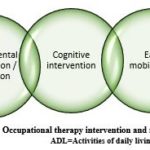Each month, we highlight news stories and articles featuring NIDUS Boot Camp alumni. If you are a Boot Camp alum and have an accomplishment that you’d like featured here, let us know. Shoshana Herzig, MD, MPH HCPLive: Epinephrine Tied to Greater Mortality in Pediatric Septic Shock Than Norepinephrine HCPLive: Balancing Pain Management and OUD in […]
Tag Archives: NIDUS
New Resource from AGS for New and Emerging Investigators
New Resource from the American Geriatrics Society for New and Emerging Investigators with an interest in including Older Adults with Multiple Chronic Conditions in Research NIDUS is pleased to share that the AGS/AGING LEARNING Collaborative has launched its website and published the first two of a planned eight domain curriculum (the remaining six domains will […]
Dr. Inouye named as JAMA Internal Medicine editor in chief
NIDUS Multi-PI Dr. Sharon Inouye was recently appointed as the editor in chief of JAMA Internal Medicine. Dr. Inouye’s appointment will officially begin on July 1, 2023. “I am truly excited to become the next editor in chief of JAMA Internal Medicine. I hope to build on the tremendous foundation provided by Dr. Rita Redberg […]
Cognitive Prehabilitation to Prevent Postoperative Delirium
Contributed by Brian O’Gara MD MPH Department of Anesthesiology, Beth Israel Deaconess Medical Center, Boston, MA Postoperative delirium occurs in 15-50% of older surgical patients, and increases the risk of postoperative complications, hospital mortality and long-term cognitive dysfunction.1 Hospital -based multicomponent interventions can prevent postoperative delirium, but these approaches are only 30-40% effective.2 Therefore, there is […]
Studying Delirium in the Neurocritical Care Unit: Improving Detection and Outcomes in Patients with Stroke
Michael Reznik, MD Assistant Professor of Neurology & Neurosurgery. Brown University, Alpert Medical School I’ve been interested in brain science, consciousness, and cognition for as long as I can remember, and it was through the lens of these interests that I opted to pursue a career in neurology. I found myself especially interested in patients […]
Occupational Therapy: Strategies for Delirium Management
Contributed by Evelyn Alvarez1,2,3 & Juan Pablo Saa4 1 Centro de Estudios en Neurociencia Humana y Neuropsicología, Facultad de Psicología, Universidad Diego Portales, Chile, 2 Facultad de Ciencias de la Salud, Universidad Central de Chile, Chile, 3 Departamento de Terapia Ocupacional y Ciencia de la Ocupación, Facultad de Medicina, Universidad de Chile, Chile, 4 Florey […]
Life Changing: Early Delirium Identification and Intervention
Contributed by Kimberly Oosterhouse, PhD, RN, CNE, Loyola University Chicago, NIDUS Pilot Grant Awardee “Kim, I think this is it; she is not responding to me. Can you please come and be with us?” These are the words I woke up to one morning 16 years ago. My distraught grandfather called me from the inpatient […]
Delirium Research Hub Spotlight – Miles Berger, MD, PhD
Every other month, the Delirium Research Hub selects an investigator and research study included in the Delirium Research Hub to feature as a Spotlight Investigator. This month, we are featuring Dr. Miles Berger, MD, PhD for his study “Markers of Alzheimer’s Disease and Cognitive Outcomes after Perioperative Care (MADCO-PC).” This study investigates whether changes in […]
Delirium Research Profile: Sangil Lee, MD
Hi everyone, My name is Sangil Lee, and I am currently working at the University of Iowa Carver College of Medicine as a clinical associate professor. Tell us how you got started in delirium research. My passion for clinical research has been with me since I became a physician in 2005, when […]
New Systematic Review of Instruments for Identification of Delirium
Contributed by Benjamin K. I. Helfand, MSc, MD/PhD (candidate), University of Massachusetts Medical School Delirium affects approximately 3 million older Americans annually, accounting for over $164 billion in healthcare expenditures.1 Delirium disproportionately affects our older population (over age 65) with major public health implications. Development of delirium is associated with prolonged hospitalization, cognitive decline, and […]








